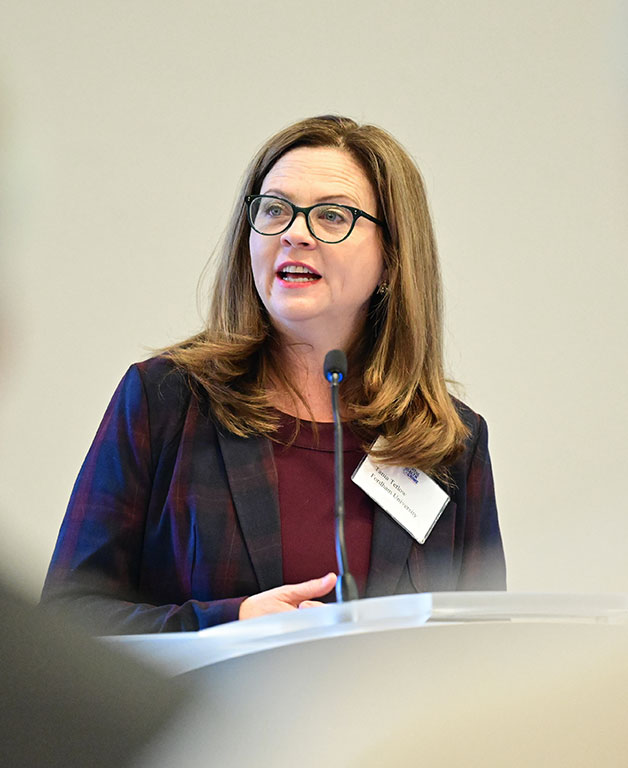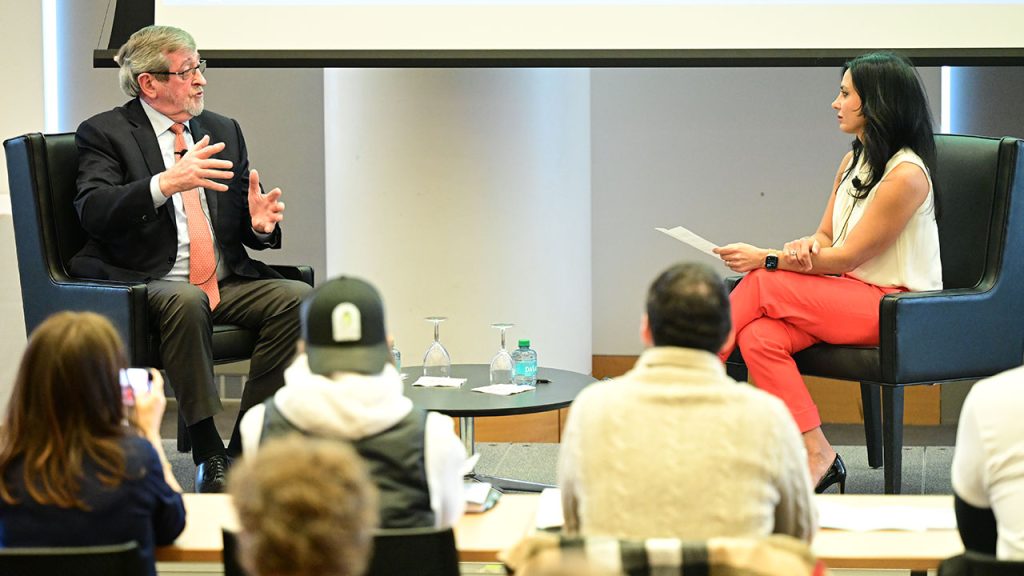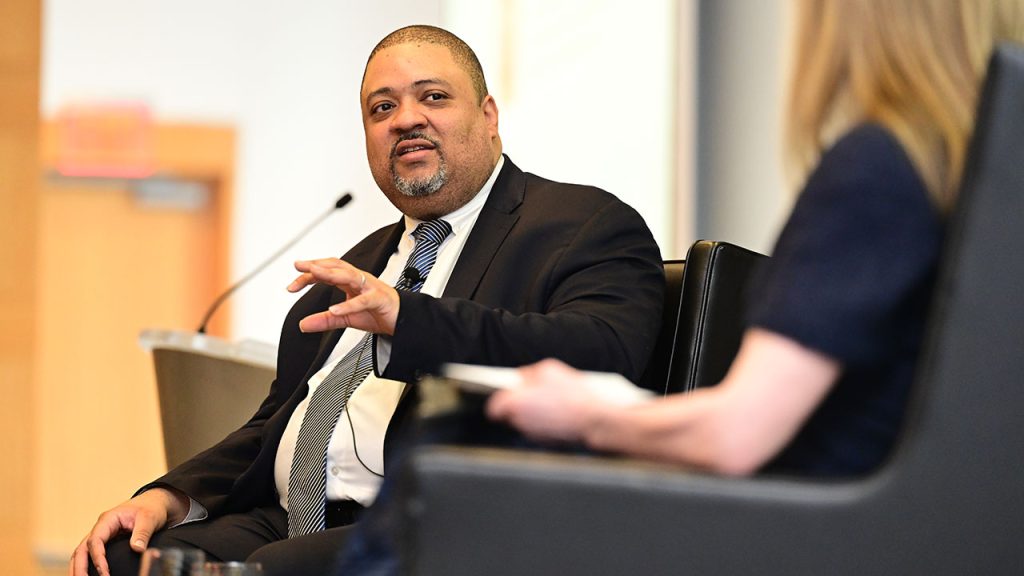What does it take to prevent crime? Speakers at a Fordham symposium laid out a number of efforts that address this question by supporting the mental health of people on the margins.

The need for such efforts is acute: “Well over half of the people at Rikers right now are suffering from some mental health issue that could be addressed,” said one speaker, Richard Alborn, president of the Citizens Crime Commission of NYC, referring to New York City’s Rikers Island prison.
Of 6,700 inmates, an estimated 1,400 have severe mental illness, and 1,500 and 1,800 suffer from opioid and alcohol abuse, respectively, he said.
“Shame on us if we don’t address that,” he said.
Academics, experts in crime and healthcare, and elected officials—including Manhattan District Attorney Alvin Bragg—spoke at the Jan. 16 Mental Health & Crime event, sponsored by Fordham, Northwell Health, and the Citizens Crime Commission.
Speakers focused on one of today’s most vexing challenges: the inordinate number of crimes committed by people who suffer from mental illness or substance abuse.
“Not everyone who has a mental health issue or confronts a mental health challenge commits a crime, and not every single person who commits a crime has a mental health challenge,” Aborn said. “Our job, if we’re going to be true to the goal of prevention, is to identify those intersections.”

A Case Study
The program was arranged to highlight a typical case as it winds its way through the system, from the first 911 call to the prosecution and sentencing of the accused.
Speakers included members of the New York Police Department, such as Monica Brooker, Ph.D., assistant commissioner of the department’s Behavioral Health Division, as well as members of the judiciary, such as Matthew D’Emic, FCRH ’74, presiding judge for the Brooklyn Mental Health Court.
In a fireside chat with Fordham Law School professor Deborah Denno, Bragg touted the proposal of a new law, known as the SUPPORT Act, which will mandate crisis intervention for mentally ill offenders who are accused of misdemeanor crimes but are deemed too unfit to stand trial. Currently, intervention is only mandated for those accused of felonies.
He praised New York Assemblyman Tony Simone and New York State Senator Brad Hoylman-Sigal for proposing the new law.
He also touted the success of programs designed to help stop the downward spiral of people suffering from mental illness. Neighborhood Navigator, launched last year by the NYC Office of Neighborhood Safety, employs outreach workers who approach people on the street who are in obvious distress and offer them everything from a cup of coffee to help with housing.
Bragg said Court Navigator, a similar program that connects criminal defendants with nonprofits such as the Fortune Society, is even more potentially transformative because of the way it helps address underlying causes of crime.
“My Spidey sense tells me this is going to be one that we’re going to want to double down on,” he said. “Just being in the courtroom, seeing workers interact with defendants, and seeing the results—this has real promise,” he said.

The Mental and the Physical
Michael Dowling, GSS ’74, President and CEO of Northwell Health, lamented the traditional separation of mental and physical health.
One of Northwell’s initiatives to address issues like the shortage of psychiatrists is a partnership with the City of New York to open a new high school dedicated to careers in mental health, radiation medicine, nursing, and physical health.
It’s an issue that affects Northwell monetarily, as he estimated that it costs the company $100 million annually to provide mental health care to patients, many of them on Medicaid. There’s also a moral imperative, though, because adolescents, in particular, have shown increases in depression and anxiety since 2012.
“There is no health without mental health. People need to talk about it differently,” he said. “It’s changing, but it needs to change much, much quicker.”


